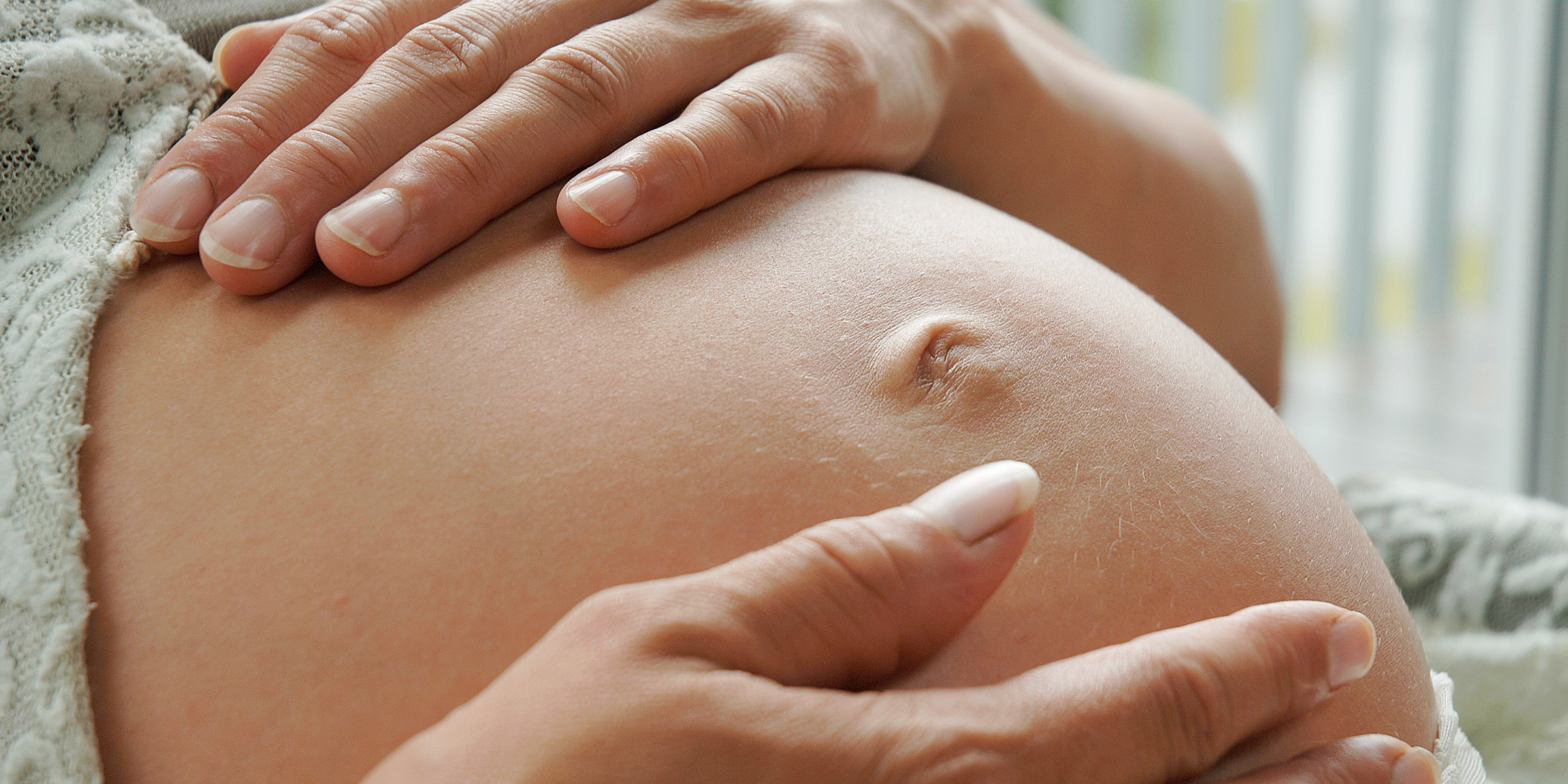
Pregnancy at 45: What Are the Real Chances?
There is a growing trend among older women nowadays choosing to start families much later in life. If you're thinking about doing the same, here's what you should know about getting pregnant at 45.
It's natural to worry about getting pregnant if you are past what experts consider your most fertile years — generally below age 35. Research has shown that as you grow older, your chances of naturally conceiving decrease.
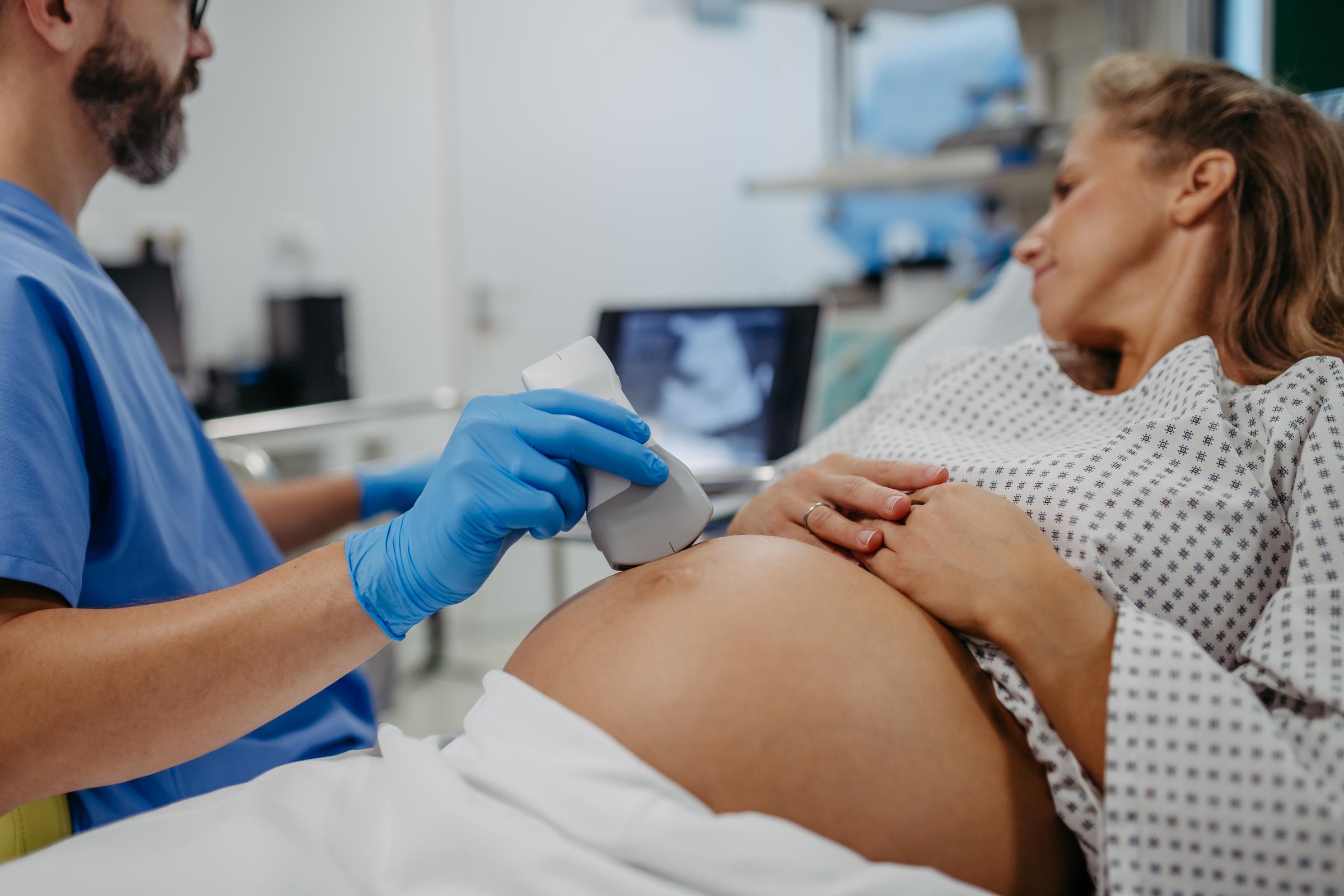
A doctor performing an ultrasound on a pregnant woman | Source: Getty Images
However, with recent advances in infertility treatments, there has been a steady rise of women over 45 being able to fall pregnant. In fact, according to the Centers for Disease Control and Prevention (CDC), the birth rate among women ages 45 to 49 has increased by 12%.
"We've had enormous advances in reproductive endocrinology and infertility treatments, and that has given many women more options," says Dr. Mary D'Alton, obstetrician and gynecologist-in-chief at NewYork-Presbyterian and Columbia.
If you're considering starting a family later in life and wondering what your chances are, here's what you should know.
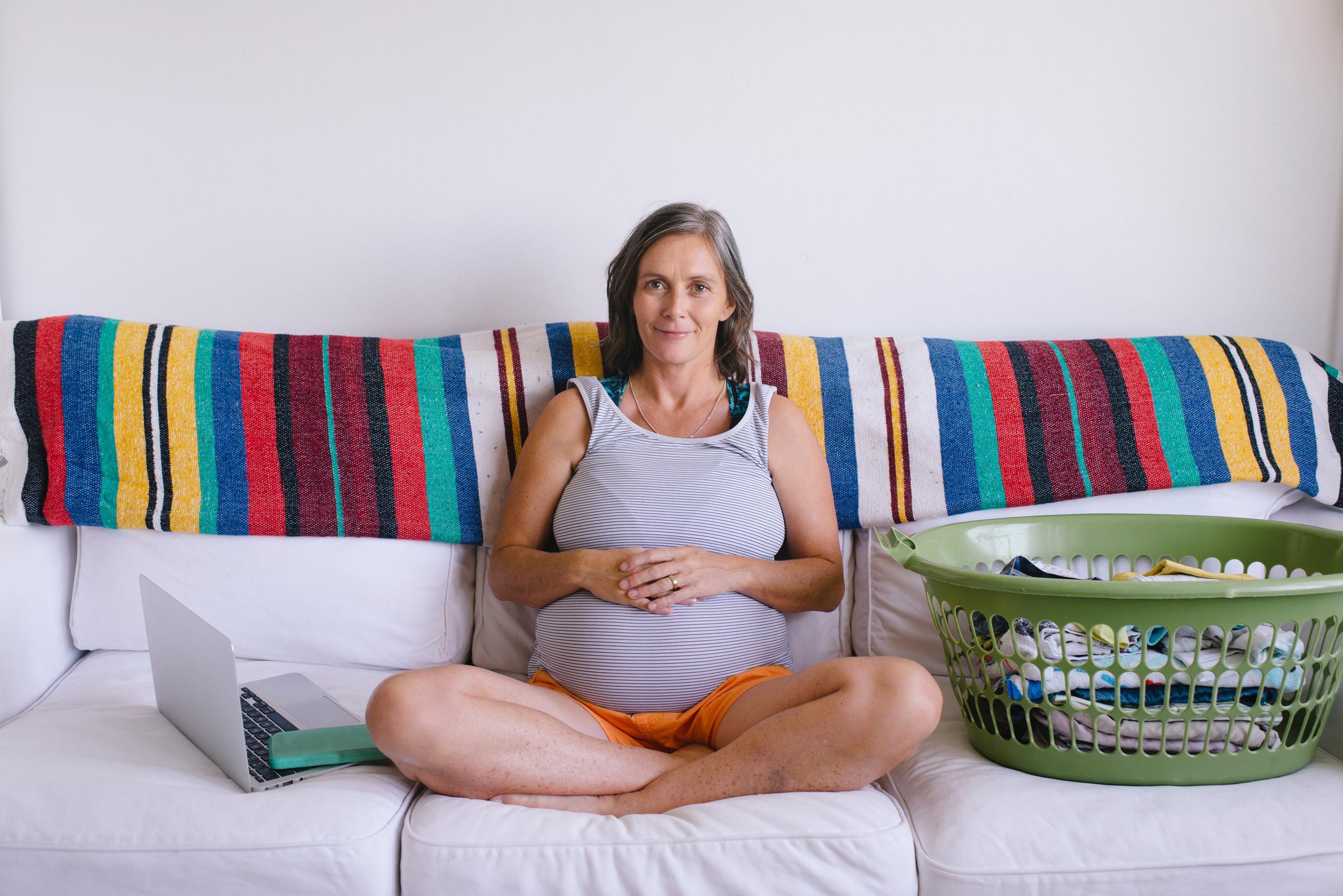
A pregnant older woman sitting with her laptop and laundry basket on a couch | Source: Getty Images
So, What Are the Chances of Getting Pregnant at 45?
You're born with about two million eggs, which is all you'll ever have in your lifetime. Your biological clock starts ticking when you get your first period and keeps going until menopause.
By that time you get your first period, your egg count will have dropped to around 300,000, and only a small portion will be healthy enough to fertilize. Over your reproductive years, you'll ovulate about 500 times, and with each passing decade, the number of viable eggs decreases.

A woman listening to her doctor | Source: Getty Images
Here's a breakdown of how your chances of conceiving change with age:
- Ages 20–24: Around age 21, there’s about a 90% chance your eggs’ chromosomes are healthy, giving you the best odds of conceiving and having a healthy baby. Fertility typically peaks around age 24.
- Ages 25–29: Fertility remains high, with about an 86% conception rate after a year of trying.
- Ages 30–34: You still have a strong chance of getting pregnant, but the risk of miscarriage is higher. Fertility treatments usually aren’t recommended unless you’ve been trying for over a year without success.
- Ages 35–39: Fertility begins to decline more noticeably due to a decrease in egg quality. While you can still conceive, eggs are more likely to have chromosomal abnormalities, increasing the risk of miscarriage or conditions such as Down syndrome.
- Ages 40–44: Both egg quality and quantity drop significantly, making it harder to conceive naturally and maintain a pregnancy.
- 45 and beyond: Natural conception becomes extremely rare — only about a 3–4% chance of pregnancy. While not impossible, most women at this age rely on assisted reproductive technologies, such as IVF, to improve their chances.
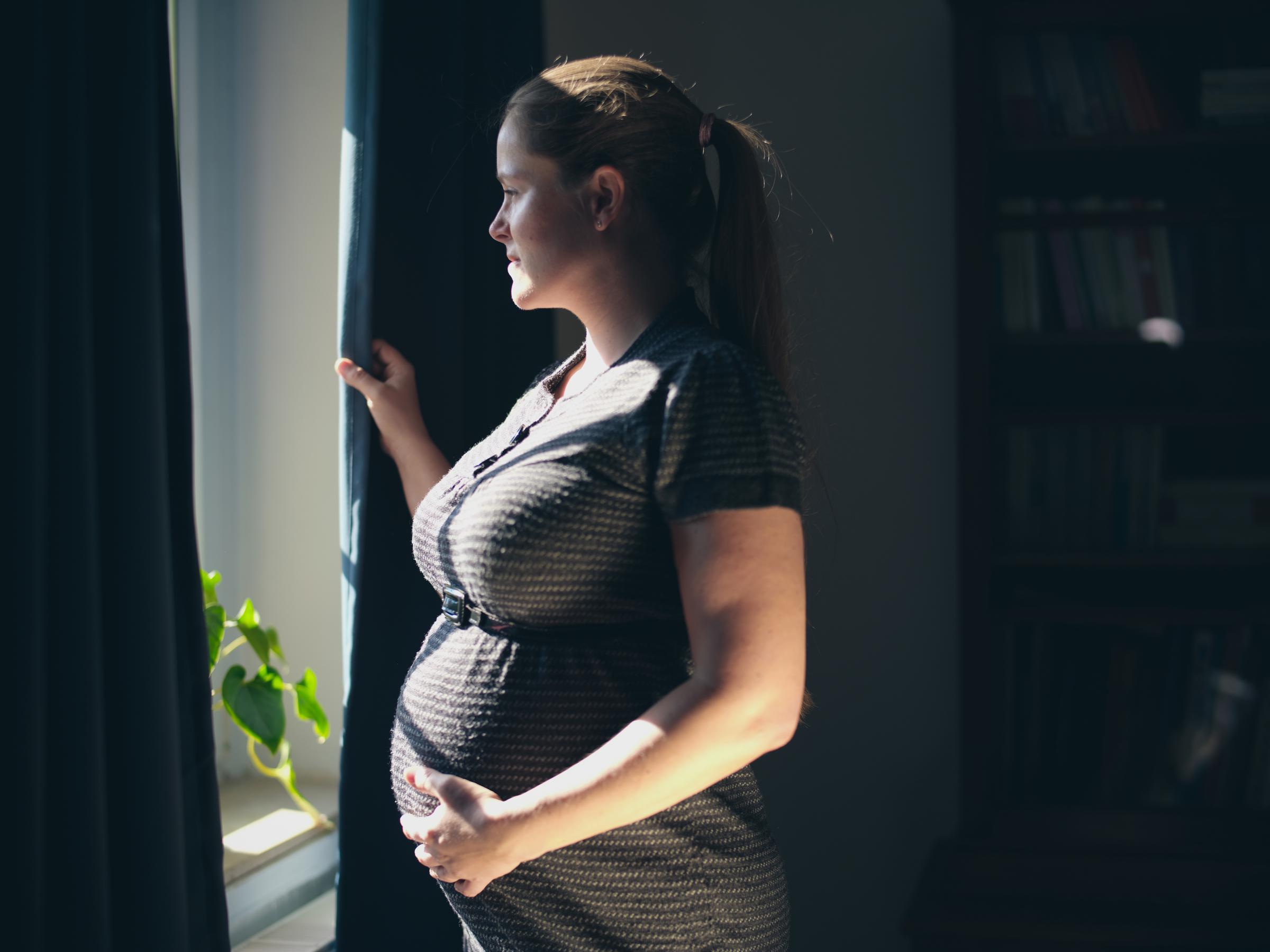
A pregnant woman standing in front of a window | Source: Getty Images
How Can Women Over 45 Get Pregnant?
Getting pregnant after 45 can be challenging, but it's not impossible. At this age, fertility naturally declines as both egg count and quality decrease. That's where assisted reproductive technologies (ART) come in, giving you a better chance of conceiving with medical support.
Here are the most common options:
- Intrauterine insemination (IUI): This involves placing sperm directly into your uterus during ovulation. While the success rate can be as low as 5% for women in their 40s, it's a less invasive and more affordable option to try first.
- In vitro fertilization (IVF): IVF involves a complex series of procedures that can lead to a pregnancy. It has a slightly higher success rate, averaging around 15% per cycle for women in their 40s.
- Egg donation: This is considered the most effective path to pregnancy after 45. It involves using a donated egg from a younger, healthier woman, which is then fertilized with your partner's sperm and implanted into your uterus, allowing you to carry the pregnancy.
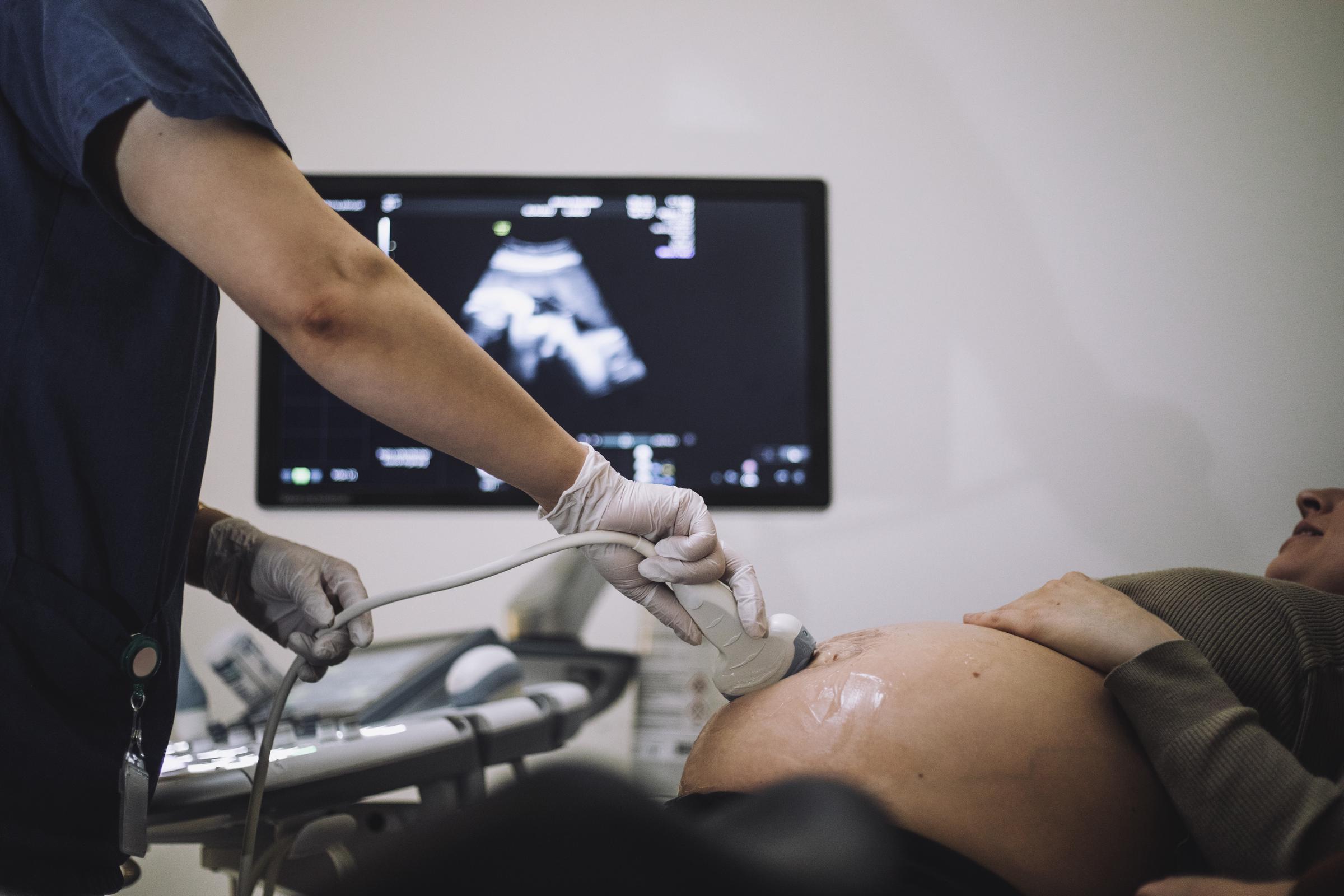
A gynaecologist performing an ultrasound on a pregnant woman's belly | Source: Getty Images
Once you've explored your options, the next step is to talk to your doctor. According to Dr. D'Alton, it's essential to meet with an OB-GYN or maternal-fetal medicine specialist before trying to conceive.
Your doctor will review your overall health — including diet, exercise, and chronic conditions like high blood pressure — and help determine the safest, most effective fertility plan for you.

A pregnant woman talking to her doctor | Source: Getty Images
What Are the Risks of Pregnancy After the Age of 45?
While modern fertility treatments and attentive prenatal care make it possible for many women over 45 to conceive, pregnancy at this age carries a higher risk of complications.
You may be more likely to experience:
- Preeclampsia, which can cause high blood pressure and organ damage
- Gestational diabetes
- Cesarean delivery
- Multiple births
- Low birth weight
- Premature labor or delivery
- Hypertension
These risks don't mean you can't have a healthy pregnancy—just that you'll need extra care and attention throughout. With the right medical support and lifestyle choices, many women in their late 30s and 40s go on to have safe, successful pregnancies.
The information in this article is not intended or implied to be a substitute for professional medical advice, diagnosis or treatment. All content, including text, and images contained on WomanlyLive.com, or available through WomanlyLive.com is for general information purposes only. WomanlyLive.com does not take responsibility for any action taken as a result of reading this article. Before undertaking any course of treatment please consult with your healthcare provider.
